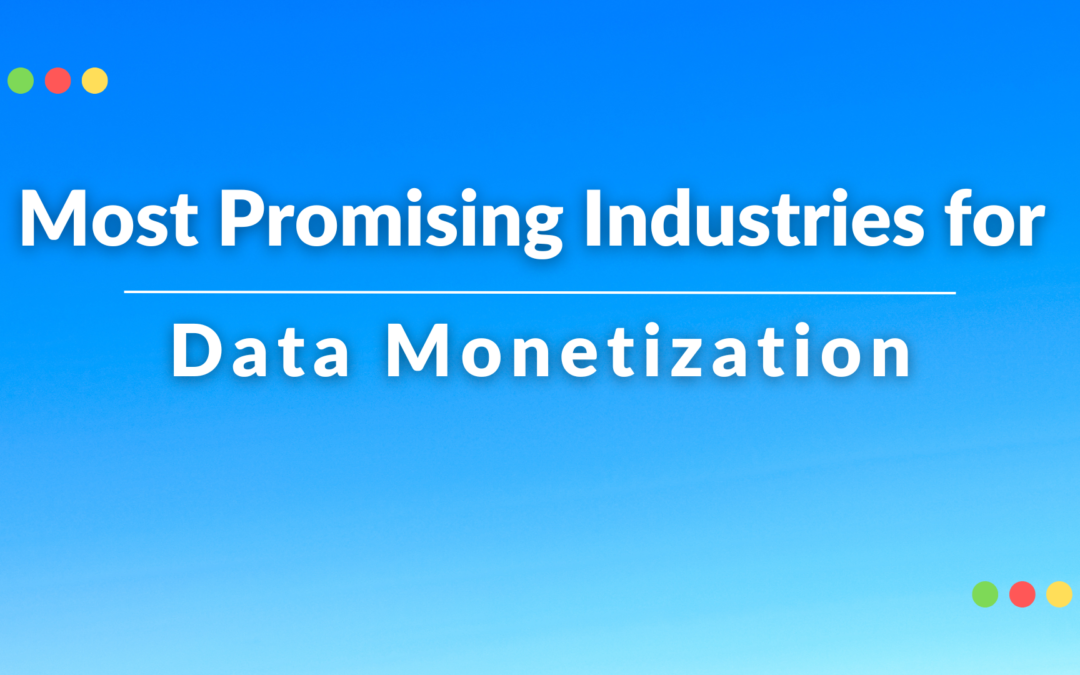Data monetization is an increasingly popular form of data utilization in which data assets are used to generate value. It has become a powerful tool for organizations and industries to access data that can be leveraged for commercial gain. Data monetization enables businesses to increase their profitability, operational efficiency, and customer engagement by harnessing data from different sources, such as artificial intelligence (AI) and data analytics. With data monetization, organizations can generate revenue from data assets, as well as build a competitive advantage in the market.
Music
The music industry is one of the most data-driven industries, and data monetization can be used to unlock the potential of data that was previously untapped. By collecting data from streaming services, data analysis platforms, and other sources, companies can identify trends, insights, and opportunities. Music companies can use data monetization to better understand their customers and better target their data analytics to drive customer conversion. Furthermore, it can be used to fine-tune the data that is collected from users, allowing music companies to create more personalized experiences for their customers.
Companies like Spotify and Pandora have already implemented data monetization strategies to drive growth and success. For example, it can help Spotify understand which music tracks are most popular with certain demographics, allowing the company to tailor its playlists and provide more relevant content for users. As seen in the graph below, streaming is now the most lucrative way to make money from music. Data monetization has only fostered this occurrence.
Automotive
Data monetization is a key tool for automakers to improve operational efficiency, optimize data-driven processes, and increase customer engagement. Automakers can use it to collect data from connected vehicles and analyze how drivers behave on the road. This data can be leveraged to build predictive models that enable businesses to understand driving habits and risks, as well as to develop data-driven products and services. Furthermore, data monetization can be used to provide real-time data insights into vehicle performance and usage that helps automakers identify problems before they arise. Additionally, data monetization can be used to create more personalized driving experiences for customers by leveraging data from connected cars and AI technologies. A 2020 study by McKinsey & Company states that “37% of consumers would switch to car brands that offered enhanced connectivity.”
Data monetization has already helped several automotive manufacturers increase their efforts. For example, BMW leveraged data from its connected vehicles to develop personalized services for customers and improve customer engagement. Additionally, data monetization is also used by automakers to reduce operational costs and streamline production processes.
Retail
Data monetization can be used by retailers to improve their operational efficiency, optimize data-driven processes, and increase customer engagement. Retailers can use data monetization to gain insights into customer preferences and behaviors, allowing them to develop data-driven products and services for customers. Additionally, data monetization enables retailers to identify potential opportunities in the market and fine-tune data from customers to gain a competitive advantage.
Retailers like Amazon, Walmart, and Target have already used data monetization to increase their profitability. For example, data analysis tools are used by these retailers to track the data from online purchases and better understand customer preferences. Additionally, data monetization can be used to create data-driven marketing campaigns and more personalized customer experiences.
Healthcare
Data monetization can be used to improve patient care, reduce operational costs and streamline data-driven processes within the healthcare industry. Healthcare providers can leverage data from connected medical devices and patient data to develop data-driven products and services that provide better care for patients. Additionally, data monetization enables healthcare providers to identify potential opportunities in the market and gain valuable insights into patient data.
Data monetization has already been used by several healthcare companies to improve operations and provide better care for patients. For example, data analytics tools are used to track data from medical devices and patient data, allowing healthcare providers to develop personalized services for patients. Additionally, data monetization is also used by healthcare providers to reduce operational costs and streamline data-driven processes. As seen in the graph below, there is now more data in healthcare than there has ever been. This growth is due to the increased use of data monetization in the healthcare industry.
Marketing
Coupled with data monetization, data-driven marketing campaigns are increasingly becoming the norm for businesses. It can be used to gain valuable insights into customer data and develop data-driven marketing campaigns that drive more conversions. Additionally, data monetization enables marketers to identify potential opportunities in the market and create more personalized experiences for customers.
Many businesses are already using data monetization to increase their marketing efforts. For example, data analysis tools are used by marketers to track data from online purchases and better understand customer preferences. Additionally, data-driven marketing campaigns are used to create more personalized experiences for customers and gain a competitive advantage in the market.
Bonus: Crowdsourcing
Data monetization is also used to facilitate data-driven activities like crowdsourcing. Crowdsourcing enables businesses to collect data from a large number of people, allowing them to gain valuable insights into customer data. Additionally, it can be used to create data-driven products and services that provide better experiences for customers.
Data monetization has already been used by several businesses to create data-driven products and services. For example, data analytics tools are used by companies like Uber and Airbnb to track data from customer interactions and better understand customer preferences. Additionally, data-driven activities like crowdsourcing are used to collect data from a large number of people and improve customer experiences.
Conclusion
Ranging from automotive to healthcare, data monetization has become an invaluable tool for businesses across various industries. It enables businesses to gain valuable insights into customer data, optimize data-driven processes, and develop data-driven products and services for customers. Additionally, data monetization can be used to reduce operational costs and streamline data-driven processes within the industry. Ranging from data-driven marketing campaigns to data-driven healthcare services, it is transforming businesses across various industries.
By leveraging data monetization, business owners can gain a competitive advantage in the market and capitalize on data opportunities. Ultimately, it has proven to be an invaluable tool for businesses looking to optimize their operations and increase profitability.
References

